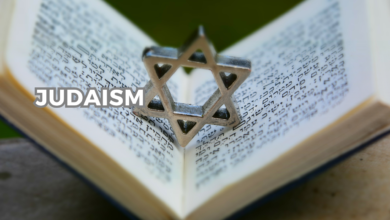
Why is Ghusl Performed in Islam?
Ghusl is performed in Islam to maintain physical and spiritual purity. It is obligatory in specific situations, such as after sexual relations (Janabah), menstruation, postpartum bleeding, a wet dream (Ihtilam), and after death. It is also encouraged as a form of purification when someone converts to Islam.

Introduction
Ghusl, the ritual purification in Islam, holds profound significance for Muslims worldwide. This sacred act is more than a mere physical cleansing; it is a spiritual practice deeply rooted in the religious tradition. In this article, we will explore the reasons why Ghusl is performed in Islam, examining its importance and the conditions under which it is necessary.
The Concept of Ritual Purity in Islam
Islamic teachings emphasize the importance of maintaining both physical and spiritual purity. This concept of purity is intrinsic to the practice of Islam, where believers are required to cleanse themselves before engaging in acts of worship or entering into a sacred state. Ghusl, as one of the essential acts of purification, plays a crucial role in achieving this state of purity.
Also check.
- Why is the Cow Sacred in Hinduism?
- What is Samsara in Hinduism?
- What is Quran?
- Where did Islam Originate?
- What is Hinduism Religion?
Ghusl: A Necessity for Several Scenarios
- Janabah: One of the primary reasons for performing Ghusl is to purify oneself from a state of Janabah. Janabah occurs after engaging in sexual relations, whether through marital bonds or otherwise. Ghusl is obligatory in such cases to restore a state of ritual purity before one can perform acts of worship, such as prayer or reading the Quran.
- Menstruation and Postpartum Bleeding: Women experience monthly menstrual cycles and postpartum bleeding after childbirth. During these periods, they are considered impure and must perform Ghusl once their cycle is complete to resume acts of worship. This practice is not about impurity or sin but rather about observing religious guidelines to maintain ritual purity.
- After a Wet Dream (Ihtilam): Wet dreams are a natural occurrence in both men and women. However, in Islam, when a person experiences a wet dream, they must perform Ghusl to cleanse themselves from the state of Janabah.
- After Death: Ghusl is also performed on the deceased as a means of purifying their body before burial. This purification is not only an act of respect for the deceased but also a way to prepare their soul for the journey to the hereafter.
- Conversion to Islam: When someone converts to Islam, they are often encouraged to perform Ghusl as a symbolic purification from their past sins and to start afresh in their newfound faith.
Spiritual Benefits of Ghusl
Beyond its mandatory aspects, Ghusl carries several spiritual benefits for Muslims:
- Enhanced State of Purity: Ghusl offers a profound sense of cleanliness and spiritual renewal, helping individuals feel more connected to Allah and more prepared for acts of worship.
- Cleansing of Sins: Ghusl is seen as a means of purification from minor sins, a reminder that repentance and spiritual growth are essential in one’s journey towards God.
- Physical and Mental Refreshment: Ghusl involves a thorough washing of the body, which can be a refreshing experience, both physically and mentally. It can serve as a moment of reflection and introspection.
- Connection to Tradition: By practicing Ghusl, Muslims connect to the tradition and teachings of their faith, fostering a sense of belonging and identity within the larger Muslim community.
Conclusion
Ghusl is a fundamental and integral part of Islamic practice, serving as a symbol of purity and spiritual renewal. It is a reminder of the significance of maintaining cleanliness, not only in the physical sense but also in the spiritual realm. Through Ghusl, Muslims demonstrate their commitment to their faith, their devotion to God, and their willingness to adhere to the teachings of Islam. This ritual is a means to attain a state of spiritual and physical cleanliness, promoting a closer connection to the divine and a greater sense of inner peace and purity.

FAQs
What is Ghusl in Islam?
Ghusl is a ritual purification in Islam that involves a thorough cleansing of the entire body. It is performed for various reasons, primarily to achieve a state of ritual purity.
Why is Ghusl performed in Islam?
Ghusl is performed in Islam to maintain physical and spiritual purity. It is obligatory in specific situations, such as after sexual relations (Janabah), menstruation, postpartum bleeding, a wet dream (Ihtilam), and after death. It is also encouraged as a form of purification when someone converts to Islam.
Is Ghusl a form of punishment or a sign of impurity in Islam?
No, Ghusl is not a form of punishment, nor is it meant to signify impurity or sin. It is a practice rooted in religious tradition aimed at achieving a higher state of purity to engage in acts of worship and maintain spiritual cleanliness.
Can women perform Ghusl during menstruation and postpartum bleeding to pray or fast?
No, during menstruation and postpartum bleeding, women are considered impure and are not allowed to pray or fast. Ghusl is performed after the completion of these states to regain ritual purity and resume religious activities.
What is the significance of Ghusl in relation to death in Islam?
Ghusl is performed on the deceased to purify their body before burial. This practice is a sign of respect for the deceased and is also considered a means of preparing the soul for the journey to the hereafter.
Is Ghusl mandatory for all Muslims, or are there exceptions?
Ghusl is mandatory in specific situations, as mentioned earlier. Not all Muslims are required to perform Ghusl on a regular basis, but it is obligatory when one finds themselves in a state of Janabah, experiences a wet dream, or converts to Islam, among other scenarios.
Are there spiritual benefits to performing Ghusl in Islam?
Yes, Ghusl is associated with various spiritual benefits, including a heightened sense of cleanliness and spiritual renewal, cleansing of minor sins, physical and mental refreshment, and a connection to Islamic traditions and teachings.
Can someone perform Ghusl if they have doubts about whether it’s necessary in a particular situation?
It is recommended for individuals with doubts about the necessity of Ghusl to seek guidance from a knowledgeable religious authority or scholar to ensure they are following the correct Islamic practices.
Is there a specific method for performing Ghusl in Islam?
Yes, there is a prescribed method for performing Ghusl in Islam, involving a series of steps and the intention to purify oneself. It is essential to follow this method correctly to ensure the validity of Ghusl.
Can Ghusl be performed in any clean water source, or are there specific requirements for the water used?
Ghusl can be performed using clean and pure water, such as tap water or river water. However, it is essential to avoid using water that has become impure or contaminated.




